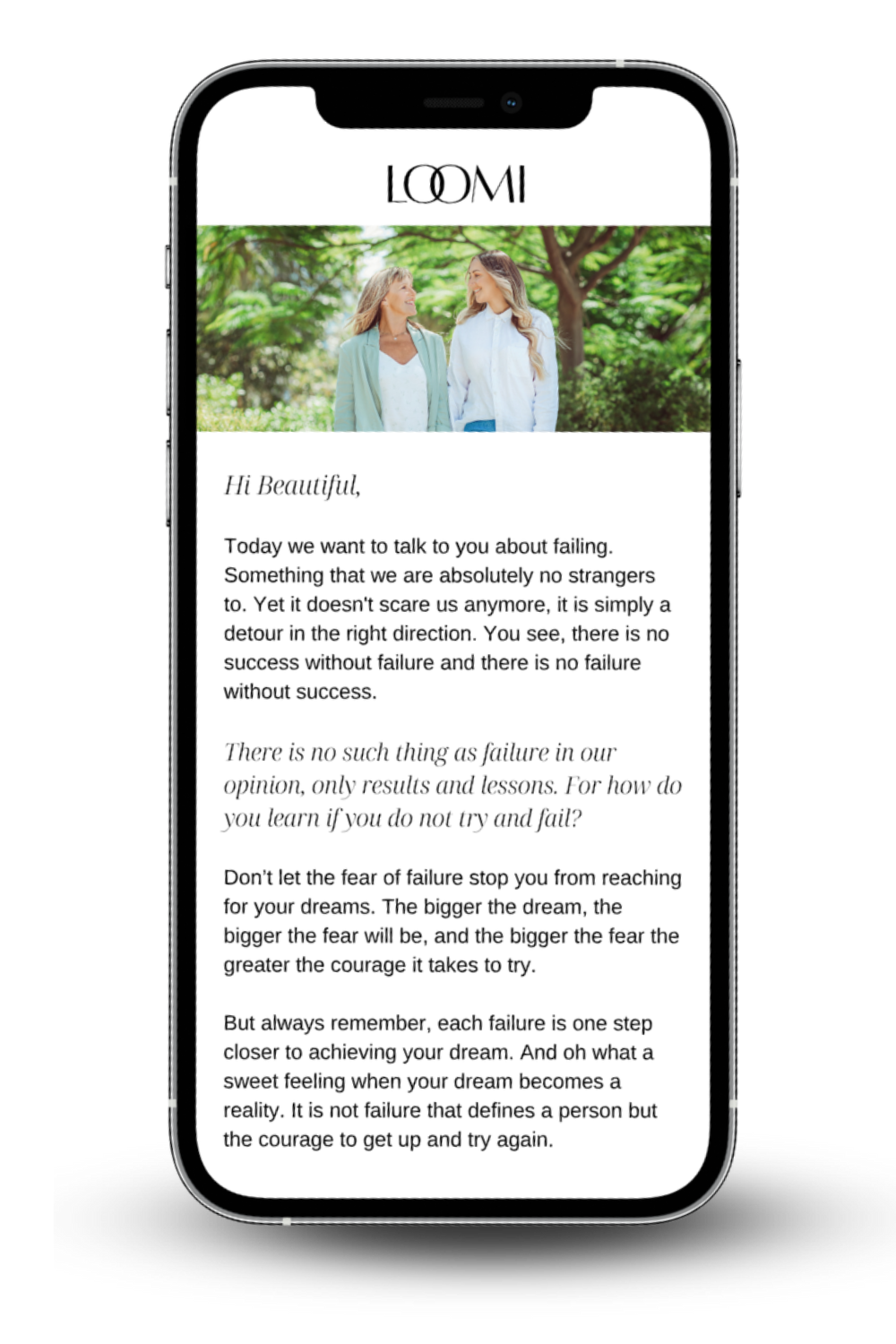Creating Habits for Personal Growth
Creating Habits for Personal Growth
We as humans are habit driven, with 40% of what we do every day, a result of habits, good and not so good. Some habits support a lifestyle we want, and some sabotage our every effort to live to our potential.
It makes sense that if we are to grow in any aspect of life, we need to create habits that support the lifestyle we want. We want to be creating habits for personal growth.
What are Habits?
So, what are habits?
Habits are the actions of the subconscious. Actions and behaviours done with little thought or consideration.
Charles Duhigg (“The Power of Habit”) says that at the core of every habit is a psychological pattern called the ‘habit loop.’ A three-step pattern that all habits proceed through. And without thought, your brain goes through each step every time.
There is the Cue
The cue triggers the behaviour. It can be anything from a time of day, another action, or a frame of mind.
Whatever the cue, the habit starts as a conscious action.
Then each time you perform an action the connection in your brain between the cue and the action is increased. And eventually the conscious behaviour becomes an unconscious behaviour.
The Routine
The routine is the habit. It is the behaviour that follows the cue. The action you perform without thought or consideration.
And the Reward
The reward is the satisfaction you get from the habit. It’s the craving that has been quenched.
And There’s the Loop
So, you have a cue that triggers the routine, that provides the reward, that satisfies the craving, which reinforces the cue, and so the loop has been established.
Understanding Your Habits
Before we can get onto creating new habits to support our personal growth, we need to understand our existing habits. Those that are good for us and those we want break or replace.
Habits start as conscious acts of satisfying cravings, with the reward becoming so unconscious they became habits.
And it’s understanding what the reward is, or what craving has been satisfied, that will help you understand your habits. You will understand why they exist and what you need to concentrate on if you wish to break an unhealthy habit.
When you wake up, what are your habits? Do you reach for your phone, brush your teeth, or make a cup of coffee?
Or what do you do when you get stressed? Do you pour a glass of wine, chew your nails or light a cigarette?
Each of these unconscious actions are habits you have created to satisfy a need.
When you awaken you might reach for your phone to satisfy the need to know what’s going on outside your bedroom. You brush your teeth for the feeling of clean teeth and fresh breath. Or you make a cup of coffee for the caffeine hit.
When you get stressed, you pour a glass of wine, chew your nails, or light a cigarette because it helps to ease the anxiety.
In the example of waking up and reaching for your phone. The cue is waking up, the routine is reaching for the phone and the reward is knowing what’s happening in the outside world.
Breaking Old Habits and Creating New Habits
The neuroscience behind habits offers no short cuts on how to break a habit, but if you can first understand where it is coming from, you can work on the cause, not on the action.
And with commitment, a solid action plan and patience, you can break bad habits and create good habits to support your personal growth.

9 Steps to Breaking Old Habits and Creating Habits for Personal Growth
1. List the Habits You Want to Break
Write down why you want to break them, then analyse the cues, the routines and the rewards. When you understand all aspects of your habits you have more chance of figuring out how to break them.
2. List the Habits You Want to Create
Write down why you want to create them, because if you understand the why, you are more motivated to stick at it and embed the habit.
3. Work On One Habit at a Time
Working on more than one habit at a time can become too overwhelming and hard to keep up momentum. Focusing on one habit at a time is easier to manage and will result in better success. Once embedded you can then move on to the next one.
That said, it’s easier to break an old habit by replacing it with a new habit. So, check your lists from step 1 and 2 and see if there’s an old habit you can replace with a new habit.
4. Set a Specific Goal
Setting a specific goal for a new habit is important. A vague goal is too wishy washy and it’s too easy to get off track, give up and lose momentum.
A goal to “drink less alcohol” is not as specific as to “not drink midweek”.
Or a goal to “exercise more” is not as specific as to “exercise every morning”.
The more specific the goal, the better you can plan.
5. Create a Plan
If you are replacing an old habit with a new habit look at the cues. What is the trigger and what can you do to change from the old habit to the new?
For example, if you want to break the habit of reaching for your phone in the morning move the phone away from the bed. And if you’ve decided to replace it with exercising every morning, put your phone beside your exercise gear that you laid out the night before.
You have to get up if you want your phone. And when you get to your phone you now have a choice, pick up your phone or put on your gear.
If you are creating a new habit, plan for success.
Is your goal to drink 8 glasses of water a day? Leave a 2 litre bottle of water in the fridge or on the bench ready for you when you get up. Start your day with a glass of water before you do anything else.
The better you are prepared the more successful you’ll be.
6. Make a Schedule
When you are trying to instill a new habit, schedule it into your day or week. Set an alarm to remind you of what action you want to take.
If your goal is to drink 8 glasses of water a day, set your alarm to go off hourly to remind you to drink a glass an hour.
If your goal is to meditate daily, set your alarm 30 minutes earlier in the morning to give yourself the extra time to do it.
Want to exercise more? Schedule your exercise time in your calendar.
7. Make it Achievable and Fun
Creating habits that stick is tough, and it’s a long game. So, by making each step achievable and fun you’re giving yourself every chance of creating habits that will change your life.
An example of why you need to make it fun and achievable is exercising.
Deciding to exercise is a grand gesture but one we inevitably lose interest in before it becomes a habit.
So make your exercise routine achievable and fun. Start with 15 minutes a day and do something you know you like to do. Don’t try to run for an hour if you know you are going to hate every moment of it. Start with a 15-minute walk and build it up. Or find a buddy who will join you.
Joining an exercise group is another way to enjoy exercise and stay motivated instead of grinding away on your own.
8. Remove Temptations
Breaking a habit you enjoy but you know needs to go is hard, so remove the temptation to make it easier. Remember the example of removing your phone from the bedside?
If you want to stop drinking alcohol, remove it from the house and replace it with a non-alcoholic alternative.
If you want to stop eating junk food, remove it from the cupboards and replace it with a tasty alternative.
It’s a lot easier to say no when the temptation isn’t staring you in the face.
9. Be Kind to Yourself
According to studies it takes anything from 18 to 254 days for a person to form a new habit and it takes 66 days for a new habit to become automatic.
So be kind to yourself along the way because there will be days when you just can’t do it, and that’s OK. Life doesn’t always run on a schedule no matter how organised you are. Just remember why you started and get back to it the next day.
Creating Habits for Personal Growth – Final Words
It’s a long, challenging road, but if you understand your why and you are prepared to do the work, you can do it. You can create good habits that support a life of growth and unlimited potential.
You can create a routine of morning habits that start your day on the right path.
Or you can create a routine of habits for a positive mindset.
We all have dreams and goals and you need good habits to support yours.

LOOMI letter
Get the good stuff delivered directly to your inbox
LOOMI letter